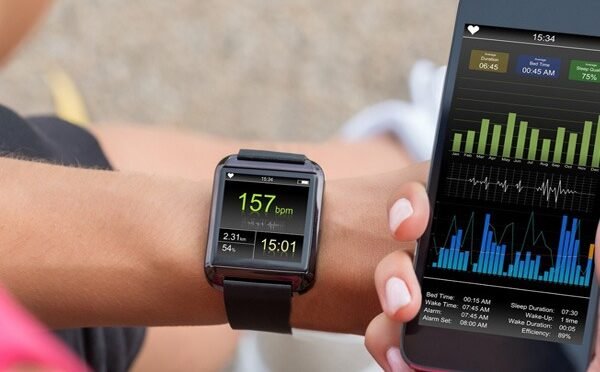Advancements in Wearable Tech: From Fitness Trackers to Health Monitoring

Advancements in Wearable Tech has experienced tremendous growth in recent years. Initially designed for fitness tracking, today’s wearable devices have expanded their capabilities to include health monitoring. This transformation is driven by innovations in sensors, connectivity, and artificial intelligence (AI). The shift from simple fitness trackers to comprehensive health monitoring tools has revolutionized how individuals approach wellness. Let’s dive deeper into the evolution of wearable tech and its impact on personal health management.
The Early Days of Wearable Tech: Fitness Trackers
Wearable technology first gained significant attention in the early 2000s with the introduction of fitness trackers. Devices like the Fitbit made it easy for users to monitor their physical activity. These trackers recorded steps, calories burned, and distance traveled, providing insights into one’s fitness routine. Early wearable tech focused primarily on promoting healthier lifestyles through basic activity monitoring.
By the late 2000s and early 2010s, fitness trackers became more advanced. They incorporated additional features such as heart rate monitoring, sleep tracking, and mobile app integrations. This allowed users to get a more holistic view of their activity levels and overall health. However, while these devices provided valuable data, they were still limited in their ability to monitor deeper health metrics.
Rise of Health Monitoring
As wearable technology evolved, so did its ability to monitor more than just physical activity. Advances in sensor technology and AI have enabled wearables to track a range of health metrics, including heart rate variability, blood oxygen levels, and even electrocardiograms (ECGs). This has paved the way for more sophisticated health monitoring devices.
The Apple Watch, for instance, has become a leader in health monitoring. With features such as an ECG app, fall detection, and blood oxygen measurement, it represents a significant leap forward from the original fitness trackers. These advancements allow users to keep track of important health indicators and receive notifications about potential health issues in real time.
Integration of Artificial Intelligence
Artificial intelligence (AI) has played a pivotal role in the advancement of wearable tech. AI-powered algorithms can analyze the data collected by wearables, providing deeper insights and predictions about the user’s health. For example, AI can identify patterns in a person’s activity or heart rate and predict potential issues, such as irregular heartbeats or sleep apnea.
Additionally, AI-driven wearables can provide personalized health recommendations based on individual data. This could include adjusting fitness goals, suggesting dietary changes, or recommending lifestyle modifications based on real-time monitoring. This intelligent functionality marks a major shift in how people interact with their wearable devices.
Wearables and Chronic Disease Management
One of the most promising developments in wearable tech is its role in chronic disease management. Devices are now capable of monitoring conditions such as diabetes, hypertension, and asthma. For instance, continuous glucose monitoring systems help individuals with diabetes track their blood sugar levels in real time. Similarly, wearables can track blood pressure and alert users to potential health risks.
By integrating these technologies into daily life, wearable devices empower individuals to take charge of their health. With real-time data at their fingertips, users can make informed decisions, adjust medications, and take preventive measures before symptoms worsen.
The Future of Wearable Tech: Health Monitoring Beyond Fitness
Looking ahead, the potential of wearable tech extends far beyond fitness tracking and basic health monitoring. Future advancements will focus on more sophisticated monitoring capabilities, including predictive health analytics and integration with other health technologies, such as telemedicine.
Wearables will become even more integrated into the healthcare system, providing valuable data to doctors and healthcare providers. This will enable more accurate diagnoses and better treatment plans. Additionally, new innovations like skin patches and smart clothing will provide even more detailed health insights, making wearable tech even more seamless and efficient.
Conclusion: A Healthier Future with Wearable Tech
Advancements in wearable tech have transformed the way we approach health and wellness. From simple fitness trackers to sophisticated health monitoring devices, these innovations are reshaping personal health management. With the integration of AI, advanced sensors, and the ability to track chronic conditions, wearable technology is helping people make more informed health decisions. As technology continues to evolve, wearable devices will play an increasingly important role in maintaining our health and preventing disease. The future of wearable tech promises a healthier, more connected world, with endless possibilities for personal wellness.
Content written by-Gunjan
Gunjan is part of the expert content marketing team at ITCombine. She has an expertise of curating meaningful information that can be used by visitors in general. Gunjan is also involved in creating Client specific stories and blogs.
Copyright © 2025 - itcombine.com.
All Rights Reserved.








